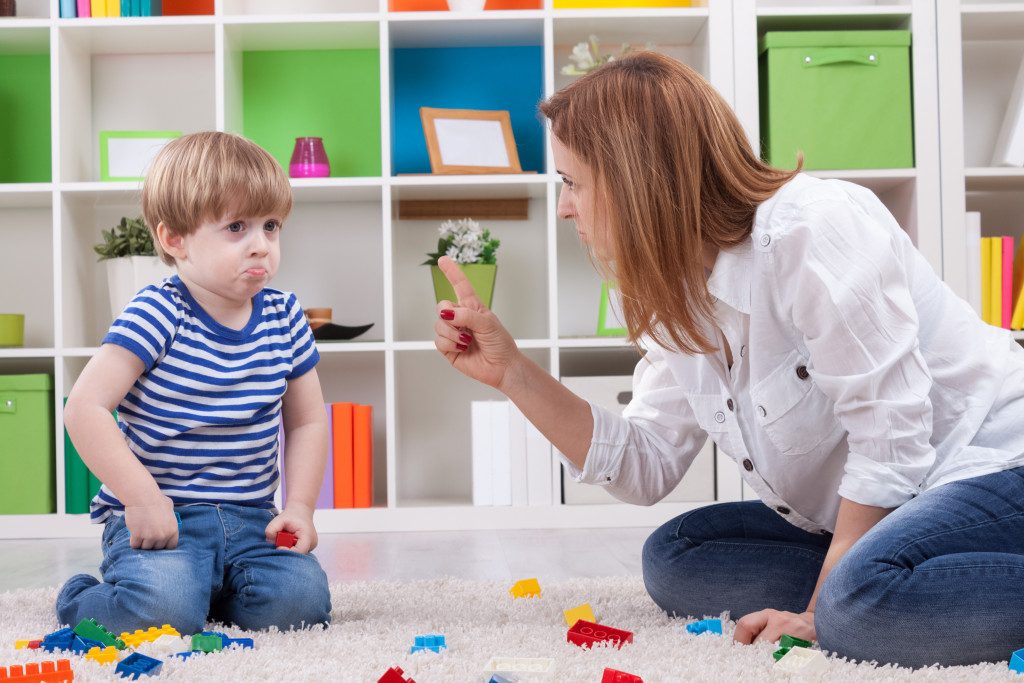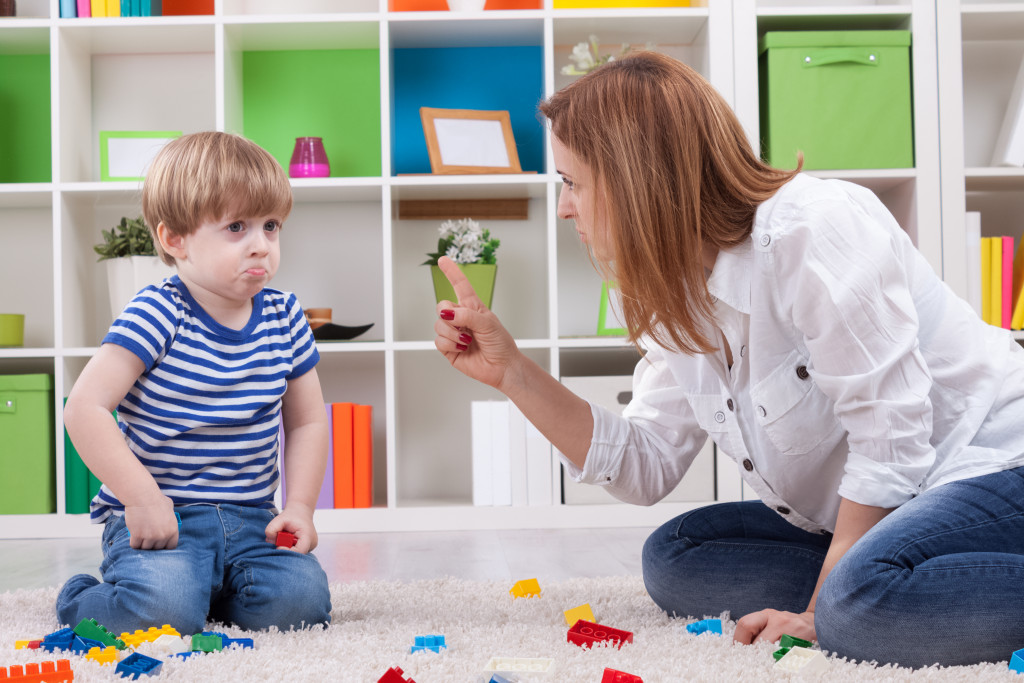There are always the endless pressures of life: appointments we’re late to, things we’ve forgotten until the last moment, health and financial worries and the list goes on. In the middle of that stress enters our child who won’t unglue herself from the TV to do her homework, won’t touch anything on her plate for dinner or is teasing her little brother. Whatever your child is doing, losing your temper doesn’t help. If yelling at your child worked, being a parent would be easy.
When kids push your buttons
Usually we get upset when our kids are not doing what we want them to do. They’re not listening or they’re not complying. In our heads, we start worrying that were not doing a good job as parents. We worry that we don’t know what to do to get them under our control. Sometimes, we fast forward to the future and wonder if this is how they’re going to be the rest of their lives. And in doing that, our anxiety increases. Much better solution in these situations would be to prepare for your child to push your buttons and not take it personally. Your child is doing his „being a kid“ job and your job is to remain calm so you can guide him.
The most important thing to remember about anger is not to act while you’re angry. You’ll feel an urgent need to act, to teach your child a lesson. But that’s your anger talking. It thinks this is an emergency. It almost never is, though. You can teach your child later, and it will be the lesson you actually want to teach. Therefore, commit to no hitting, no swearing, no calling your child names while angry.
The next time you find yourself getting inappropriately irritated or angry with your child try to put the interaction on hold and, if possible, take time to calm down. In this way, you can stop yourself from inflicting greater emotional damage in the heat of the moment and give yourself the opportunity to reflect about what may have triggered your emotional reactions in the first place. Then you can reconnect with yourself and once again feel compassion for your children.

How to cope if close to yelling or snapping
Here are some tips to help you control your temper before you lose it:
Stop, drop and breathe.
The feeling of annoyance or anger at your child is a signal to stop. Drop everything else you’re doing, take a deep breath and count to 10. It also helps to repeat a mantra like „Everything will be ok“ or „He’s acting like a child because he’s a child.“ Keep breathing slowly until you feel some calm flow through you. It gives you that tiny space between thought and action that lets you choose more wisely.
Put your own oxygen mask on first.
What will calm you right now? A cup of tea on the back steps listening to the birds while the kids run around? Putting on music and dancing with your kids while you all sing and shout as loudly as you can? Do it for five minutes. You can always make it up somewhere else, and this will change the whole tone of your day. After you’re calmer, you can revisit whatever was upsetting you with your child, and make things better.
Recognise triggers.
If the same things get to you all the time, then learning to recognise what triggers your temper can help you stay calm. Whether it’s a teenager’s attitude or a toddler’s never-ending use of the word ‘no’, knowing what can set you off can help you keep control. Even the fact that you’re aware you may lose your temper in that situation can be enough to stop you going down the shouty path.
Cheer up.
Try to find a way to laugh, which discharges the tension and shifts the mood. Even forcing yourself to smile sends a message to your nervous system that there’s no emergency, and begins calming you down. If you need to make a noise, hum. It can help to physically discharge your anger, so try putting on some music and dancing.
Turn „I must“ into „I want“.
Define your priorities. „I must clean this mess“ or „I want to teach my child to pick up his toys, and put an end to the toys everywhere“. Which statement is getting you closer to your „remain calm and find the way to finish what you have started without hurting anybody’s feelings“ goal?
See the bigger picture.
Think about this for a moment. The next time you’re upset at your child, think if this is a situation that will affect you and your family a year from now. No? Then it’s probably not worth getting too worked up about. Remember that your child is exactly that, a child. Don’t expect him to act as an adult.
Exercise.
Instead of letting the anger boil up inside you, offer to get yourself of the situation with your child and instead go for a walk around the block. You’ll both feel much better and calmer afterwards.
Finally, if nothing works go into your car with the windows rolled up and scream where no one can hear.
Your children get angry too, so it’s a double gift to them to find constructive ways to deal with your anger. You not only don’t hurt them, you offer them a role model. Your child will certainly see you angry from time to time, and how you handle those situations teaches children a lot.
„Support, not Perfection“ program the Novak Djokovic Foundation launched last year brings some of the most effective methods to deal with this and other top parenting challenges.
For more information about the program email us at projects@novakdjokovicfoundation.org or share your experiences and impressions in the comment section below.
About the author
Smiljana Grujic is a psychologist and psychotherapist dedicated to education. The focus of her work is compassionate communication and emotions management. Smiljana is the expert associate of the Novak Djokovic Foundation.

















